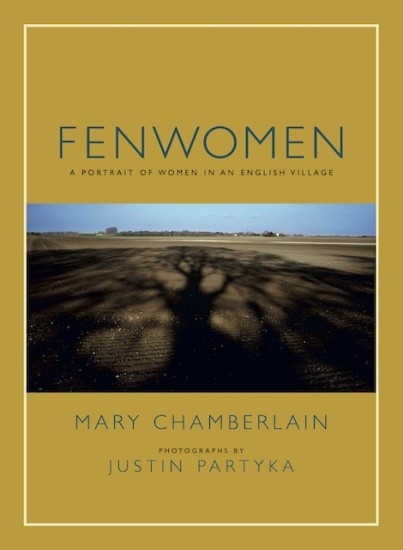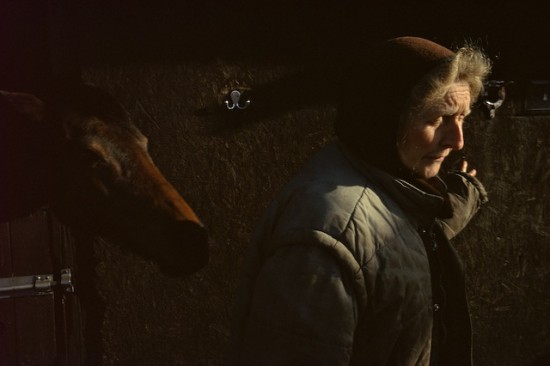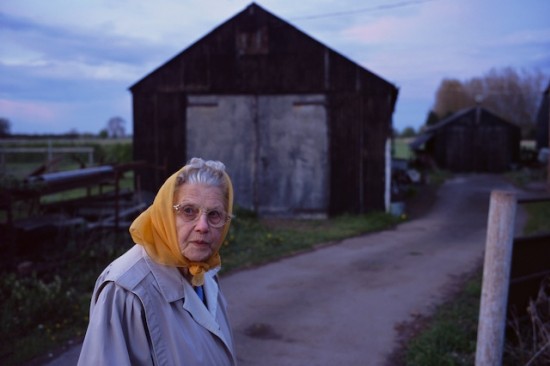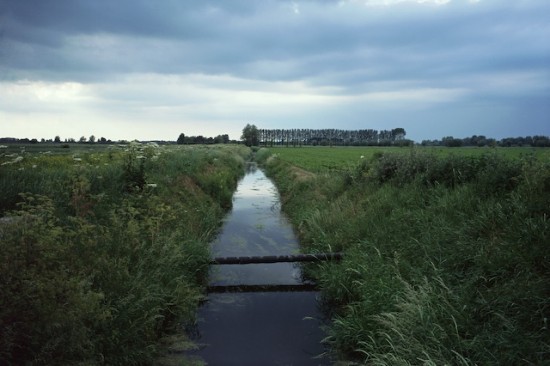
Words by Mary Chamberlain, Photographs by Justin Partyka, Full Circle Editions, £25.
Review by Ken Worpole.
‘There was no joy in my life, looking back,’ one of the women interviewed in 1973 for this book told historian Mary Chamberlain. She was one of a number who confessed to a lifetime of hard work, insanitary living conditions, indifferent marriage, and emotional and physical isolation in a small Fenland village. When this classic oral history was first published by the newly created Virago Press in 1975, the News of the World went out of its way to identify the village in question, disguised in the book, causing much local embarrassment and bad feeling.
It is worth being reminded from time to time that not everything in the garden (of rural England) is lovely. Most of those women interviewed hated school, and then went on to hate work – whether potato-picking or travelling long distances by foot or bicycle to work in factories. If they got wet walking 3 or 4 miles to school in the morning, they stayed wet all day, and possibly caned for making a fuss about it. Those who showed talent or ambition knew that their parents could not afford for them to go to grammar school, and so buried their humiliation deep inside themselves. One woman, who had been offered a grammar school place, but had been required to turn it down, later went into service in one of the Cambridge colleges, where she used to stand at table saying to herself, ‘I ought to have been one of you’.

There is very little warmth of feeling for the natural beauty of the fens in these recollections. In the worst times families survived either by poaching (with regular spells in prison for the many caught) or living on charity. Rabbits, eels, sparrows and even larks were fair game for food, along with the unvarying diet of swedes, turnips and potatoes. If you worked for the main land-owning family – still there today – Church (never Chapel!) attendance and voting Conservative were considered compulsory.
When Chamberlain returned to the village last year while preparing this new edition, much had changed, though she was glad to be remembered by some of the women she interviewed thirty-five years before. It is now more of a commuter village than a working village, and even if living standards are higher today, and school less intolerable, and marriage more companionate, there is still a strong sense of isolation. What shops there were are mostly closed, and the bus service is almost non-existent. Women still grow flowers, which they pack and sell to wholesalers in London.

This handsome new edition from East Anglian publisher, Full Circle Editions, contains a vibrant and colourful photo-essay of contemporary life in the village by acclaimed photographer Justin Partyka. This gives the new edition a particular resonance to today’s Fenland inhabitants, who will recognise modern village life in these images, though they stand in some contrast to the life described in the original interviews. The photographs – some peopled, some wholly concerned with the arable landscape, the drains and ditches and the large skies – are finely composed and atmospheric, yet they also raise unresolved questions about how to represent the human presence in the landscape without seeming too super-realist, too Martin Parr.
Any anxiety that there might be a complete lack of connection between the historical material and Partyka’s contemporary photographs of Isleham – as we now know it to be – is soon dispelled. The photo-essay at the end in a way completes the saga of life in the village, and by bringing old and new together captures the changing fortunes of Fenland village life as it has been for 100 years, and makes a wholly satisfying conclusion to this poignant book. It also returns the endurance of people – particularly the women who bore the brunt of misfortune – to the landscape, which is no bad thing in an age in which there is a tendency to poeticise rural life without appreciating how unforgiving life in the fields can be.

Justin’s photographs are on display Friday 4th – Sunday 6th March, in the Cinema Gallery, Aldeburgh. The opening gathering is 4.30pm (open to all CBTR readers), and this follows Mary Chamberlain’s talk as part of the festival. Tickets available at: http://www.aldeburghbookshop.co.uk/
To see more of Justin’s work visit his website.
Click here to view the Full Circle Editions book list.